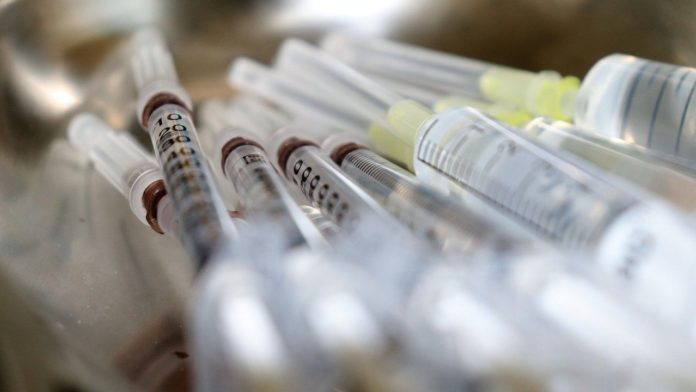The one-millionth COVD-19 vaccine was administered yesterday (Sunday).
That’s according to the Dutch Minister of Health, Hugo de Jonge says. However, this is a ‘calculated number’. On Saturday, the government’s vaccination dashboard showed that 987,435 shots had been administered.
On Sunday, at least 30,000 more were administered, thus totalling more than one million. Officially, 779,889 vaccinations were done. But according to the National Health Department (RIVM), the difference is due to underreporting.
Not all institutions and general practitioners report the number of vaccinations as quickly as the RIVM does. By 14 February, 154,400 people in the Netherlands had received both vaccinations. The two-million mark is expected to be reached in mid-March.
The Dutch vaccination programme got off to a late, slow start. Now, everyone over 80 have received invitations for a shot. And, in Brababt, the first vaccinations can be administered to people aged 60 to 64 and obese people from 18 up.
When’s it your turn?
On paper, the entire adult population could be vaccinated by September. But when it it your turn? From January, 30,000 out of 40,000 acute care workers, and 15,000 GPs and their employees were vaccinated. And, 155,000 nursing home and mentally-challenged institutionalised residents began getting vaccinated. They should all have gotten their turn by next month.
More than four million people, 60 and older, will also start getting the jab – from oldest to youngest. However, as mentioned, 60-64 year-olds, have priority. The government hasn’t (yet) make a distinction between those on chronic medication. This will last until August.
In February, the innoculation of hundreds of thousands of disabled care workers, district nursed and those working in the welfare sector began. This will run until July. From now until June, 25,000 mental health care providers will get vaccinated.
May to September
Until May, it will be 1,8 million people aged 18 to 60 with a medical indication’s turn. Between April and August, all other care workers will get the jab. Then, it’s all other adults turn from May to September.
Children under the age of 18 years are not to be vaccinated. According to the Ministry of Health, COVID-19 is hardly dangerous for them. General Practitioners (GPs), doctors at the various institutes and the regional health departments (GGD) will administer these vaccines.

Several GP groups in the Eindhoven region have decided to start administrating vaccines at a centralised location. They want to avoid wasting vaccines. This will start on Thursday in the Evoluon.
“Don’t want to waste it’
SGE from Eindhoven, PoZob from Veldhoven and Elan from Helmond joined forces for this project. More GP groups have since joined. “We decided on a central location so we can minimise the risk of vaccine wastage,” says Ed Berends, a member of the SGE Board of Directors.
Vaccines are ordered per box. If every GP orders for themself, there is a good chance that too much will be ordered and vaccines will be thrown away. “If we vaccinate centrally, we have a better idea of the number of vaccines we need to order collectively.”
When the GP groups came up with the idea, they first looked at GGD vaccination locations. “It soon became clear that there wasn’t enough room at those sites. Last week, we started looking for another location and the Evoluon was the answer,” says Berends.
GPs can now give the jab
Starting this week, GPs can invite a specific group of people to their practice to be vaccinated. These are 63 and 64 year olds, people with Down’s syndrome and those who are extremely overweight. People under 65 will get the AstraZeneca jab.
Those 65 and over will get the Pfizer or BioNTech vaccine. These older people have been receiving the vaccine since the end of January.
The vaccination schedule has changed countless times. This is partly due to the course of the virus, such as the spread of the more infectious British variant. For example, the period between the first and second shot has been extended from three to six weeks.
Should create group immunity
So, more people will get their first shot sooner. The hope is that they will be at least partially protected against the virus. In order to reverse the restrictive COVID-19 measures, it’s important that as many people as possible are vaccinated. That should create group immunity.
To achieve this, 70% of the population in the country would have to be vaccinated. According to the latest polls, more than three-quarters of the population want a shot. If everything goes according to plan, they could be vaccinated by summer. Measures may be scaled down earlier, if many vulnerable people have been vaccinated.
Sources: OmroepBrabant and Studio040
Translator: Melinda Walraven
.
















